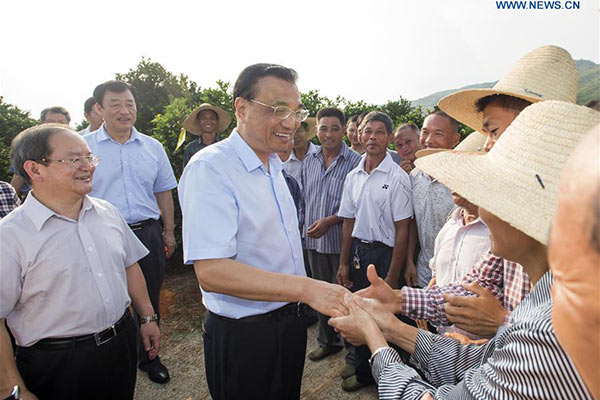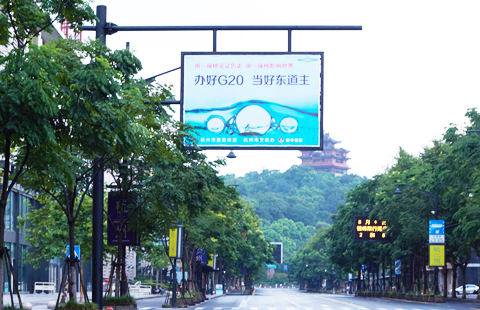China eyes reform, innovation to drive less-developed areas
(Xinhua) Updated: 2016-08-25 08:54
 |
|
Chinese Premier Li Keqiang (C) visits a navel orange planting base in Ruijin, East China's Jiangxi province, Aug 22, 2016. Li made an inspection tour in Jiangxi from Aug 22 to 24. [Photo/Xinhua] |
NANCHANG - Premier Li Keqiang has stressed the need for more reforms and innovation to boost economic growth in the less-developed central and western China.
"China's central and western parts have ample room for the economy to expand and can be important in accelerating the shift of economic engines," Li said during a tour of Jiangxi province.
During the three-day tour which ended on Wednesday, the premier visited high-tech firms, industrial parks, rural residences and flood control sites.
Li praised a new business model of Farasis Energy (Ganzhou) Inc, a joint venture of US-based lithium ion battery maker Farasis Energy. The company cooperates with domestic manufacturers to produce customized equipment.
"The new model upgrades traditional equipment manufacturing and will create enormous industrial demand," Li said, adding that it should be promoted in the "Made in China 2025" program.
Li also visited Nanchang's Lattice Power Corporation, the first company in the world to offer volume production of high-powered silicon substrate-based LEDs.
The premier encouraged innovators at the company and promised more policies to help innovation and entrepreneurship and step up the industrial application of new technology.
During a visit in an industrial park that serves architects and designers, Li said China will increase support for small firms and startups to generate more jobs for college graduates.
During a tour of Huangsha Village in Ruijin, one of Jiangxi's old revolutionary bases, Li said the government will continue to improve rural infrastructure and encourage areas to nurture their own special industries.
Farmers of Huangsha have managed to increase the market share of their naval oranges using the Internet.
Li also promised increased policy support for agriculture and to step up the renovation of dilapidated residences.
When inspecting a flood control project in Nanchang, the premier said there are still weak points in water conservancy and China will make more efforts to reinforce reservoirs, improve river control and prevent waterlogging in cities.
Regions along the Yangtze River were battered by continuous downpours this summer, with many villages flooded due to poorly-maintained small dikes on tributaries.
- Premier Li stresses relocation as key to poverty alleviation
- Premier Li: High-tech manufacturers to build brands and new business models
- Premier Li pays homage to Red Army martyrs
- Premier Li vows to improve infrastructure for rural areas in southern Jiangxi
- Premier Li’s attention to lives of disabled people
- China eyes reform, innovation to drive less-developed areas
- With 300m yuan stake in Penging, Vanke goes bullish on fintech sector
- Game of wealth requires strong will power
- Health insurance to see robust growth
- CAR drives up H1 net earnings
- CNOOC suffers big loss on low oil price
- China Post to issue special stamp set for G20 Hangzhou Summit
- US firms in China remain upbeat despite challenges


















